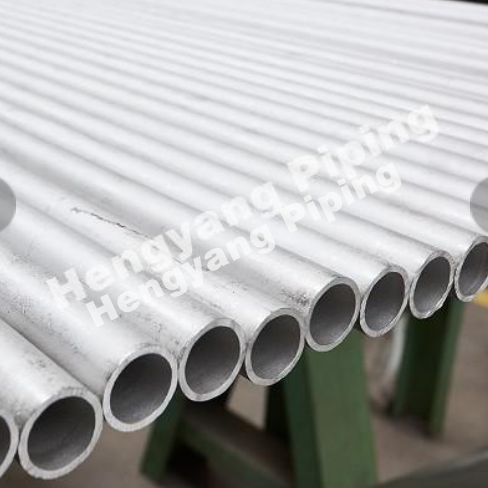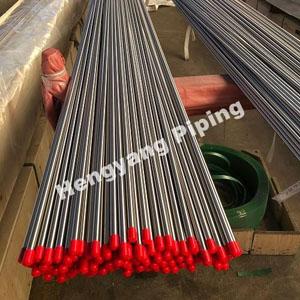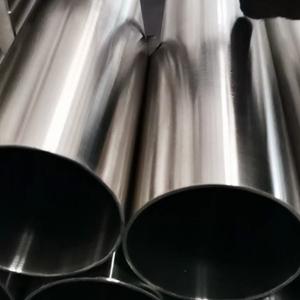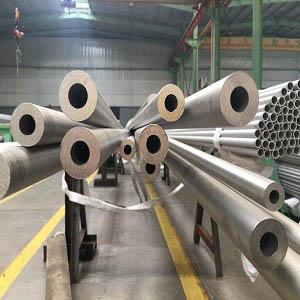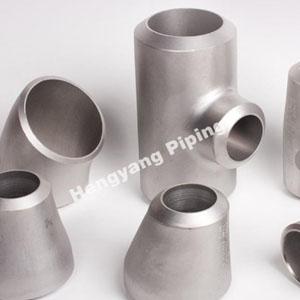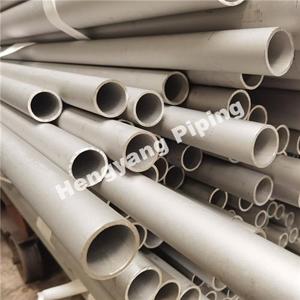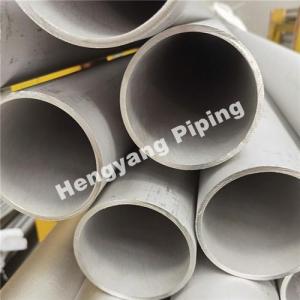Where Are Nickel Alloy Pipes Used?
Nickel alloy pipes, known for their exceptional corrosion resistance, high-temperature strength, and remarkable versatility, find application in a wide range of industries and environments. These specialized pipes are composed of nickel and various alloying elements, making them ideal for withstanding extreme conditions. In this comprehensive guide, we will explore the diverse applications of nickel alloy pipes, showcasing their critical role in various industries and their significance in modern engineering.
Understanding Nickel Alloy Pipes
Nickel alloy pipes are constructed using nickel as the primary material, often alloyed with other elements such as chromium, molybdenum, iron, and copper, among others. These alloys are engineered to offer superior performance in challenging environments, making them indispensable for applications where standard materials fall short. The key characteristics that make nickel alloy pipes highly sought after include:
1. Corrosion Resistance: Nickel alloys exhibit remarkable resistance to corrosion in various corrosive media, including acids, alkalis, and seawater. This property is particularly valuable in industries where exposure to aggressive chemicals is commonplace.
2. High Temperature Strength: Nickel alloy pipes retain their mechanical properties at elevated temperatures, making them suitable for applications in high-temperature environments, such as power generation and petrochemical processing.
3. Excellent Thermal Conductivity: Some nickel alloys possess exceptional thermal conductivity, making them ideal for heat exchangers and other applications where efficient heat transfer is crucial.
4. Versatility: Nickel alloys can be tailored to meet specific application requirements by adjusting the alloying elements, allowing for a wide range of mechanical properties and corrosion resistance levels.
Applications of Nickel Alloy Pipes
Now, let's explore the diverse sectors where nickel alloy steel pipe pipes are indispensable:
1. Oil and Gas Industry
The oil and gas industry relies heavily on nickel alloy pipes for several critical applications:
- Downhole Equipment: Nickel alloy pipes are used for downhole equipment in oil and gas wells due to their corrosion resistance and high-temperature strength. They ensure the safe and efficient extraction of hydrocarbons from deep underground reservoirs.
- Pipelines: In the transportation of oil, gas, and corrosive fluids over long distances, nickel alloy pipes are crucial for their ability to withstand the corrosive effects of the transported media.
- Refineries: Nickel alloy pipes play a vital role in refining processes where high temperatures and aggressive chemicals are encountered. They are used for pipes, fittings, and heat exchanger components.
2. Aerospace and Defense
The aerospace and defense sectors rely on nickel alloy pipes for their exceptional strength, durability, and corrosion resistance:
- Aircraft Engines: Nickel alloy pipes are used in aircraft engines, where they withstand high temperatures and corrosive gases. They are vital for components like exhaust systems and combustion chambers.
- Missile Systems: Nickel alloy pipes are employed in missile systems and defense equipment that must perform reliably under extreme conditions.
3. Power Generation
In the power generation industry, nickel alloy pipes are used in both fossil fuel and nuclear power plants:
- Boilers and Heat Exchangers: Nickel alloy pipes are employed in boilers and heat exchangers, where they resist corrosion and maintain mechanical integrity at high temperatures.
- Steam Turbines: Nickel alloys are used in steam turbines, ensuring reliability and longevity under high-temperature, high-pressure conditions.
4. Chemical Processing
Nickel alloy pipes are critical in the chemical processing industry:
- Chemical Reactors: These pipes are used in chemical reactors that handle aggressive chemicals and high temperatures. Their corrosion resistance is essential to prevent leaks and ensure safety.
- Acid and Alkali Handling: Nickel alloy pipes are indispensable for handling corrosive acids and alkalis, which are prevalent in chemical manufacturing.
5. Desalination Plants
In desalination plants, where seawater is converted into fresh water, nickel alloy pipes are used in various components:
- Evaporators and Condensers: These pipes are employed in evaporators and condensers, where they withstand the highly corrosive nature of seawater.
6. Marine and Offshore Industry
The marine and offshore industry relies on nickel alloy tubes for various applications:
- Seawater Piping: Nickel alloy pipes are used for seawater piping, ensuring resistance to the corrosive effects of saltwater.
- Offshore Platforms: In offshore platforms, where exposure to harsh marine environments is constant, nickel alloy pipes are crucial for structural components and piping systems.
7. Pharmaceutical and Biotechnology
In the pharmaceutical and biotechnology sectors, nickel alloy pipes are used in cleanrooms and facilities requiring high levels of hygiene and corrosion resistance:
- Pharmaceutical Manufacturing: These pipes are utilized for transporting and processing pharmaceutical products, where cleanliness and corrosion resistance are paramount.
8. Food and Beverage Industry
The food and beverage industry relies on nickel alloy pipes for sanitary applications. They are used in the transportation of food-grade liquids, such as dairy products and beverages, while maintaining product integrity and preventing contamination.
Conclusion
Nickel alloy pipes, with their exceptional corrosion resistance, high-temperature strength, and adaptability, have found their way into numerous industries and applications. From the oil and gas sector to aerospace, power generation, chemical processing, and beyond, these pipes play a critical role in ensuring the integrity, safety, and efficiency of various processes. Their versatility and ability to withstand extreme conditions make them an indispensable choice for modern engineering and manufacturing, contributing significantly to the advancement of technology and industry.
